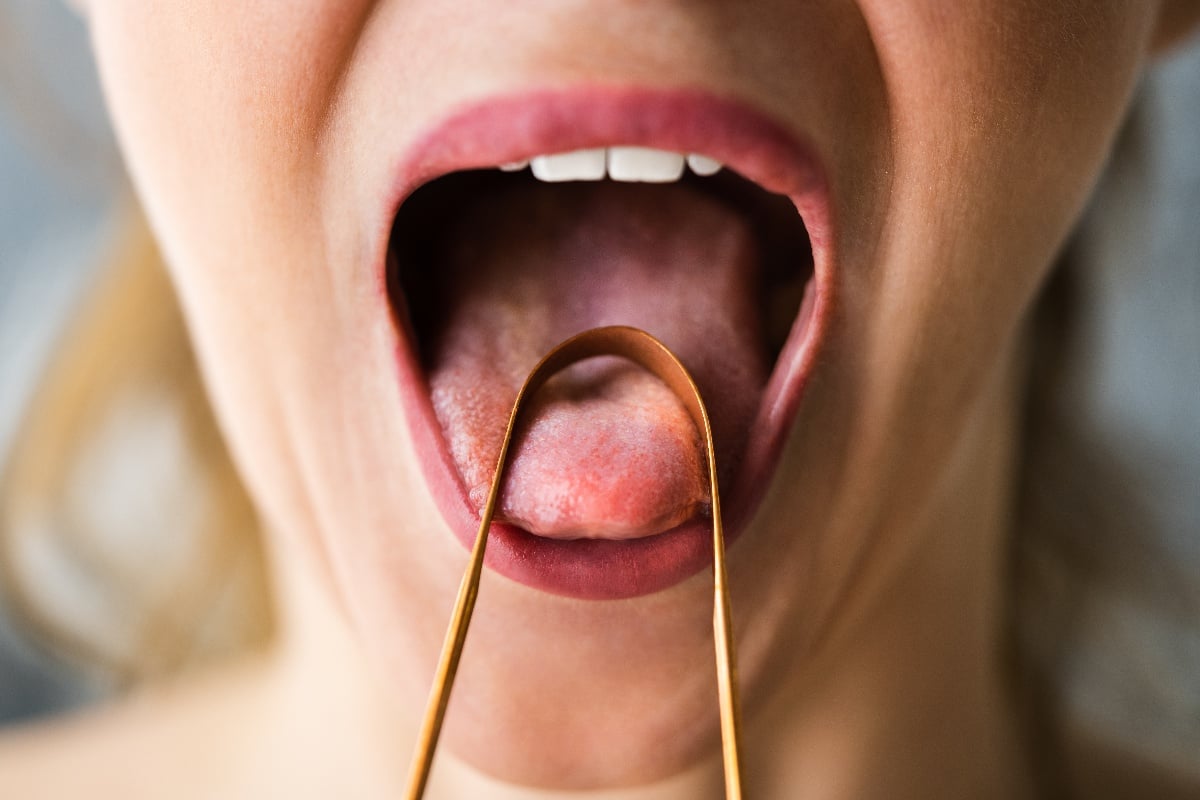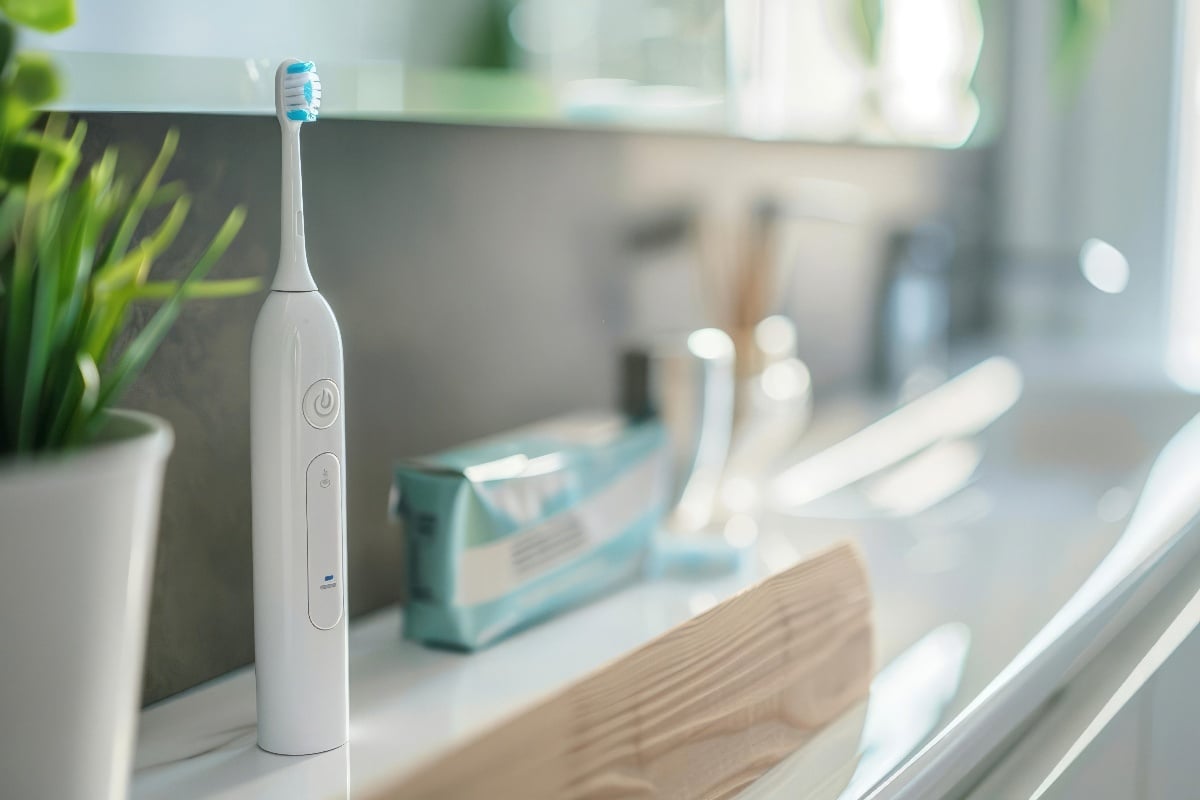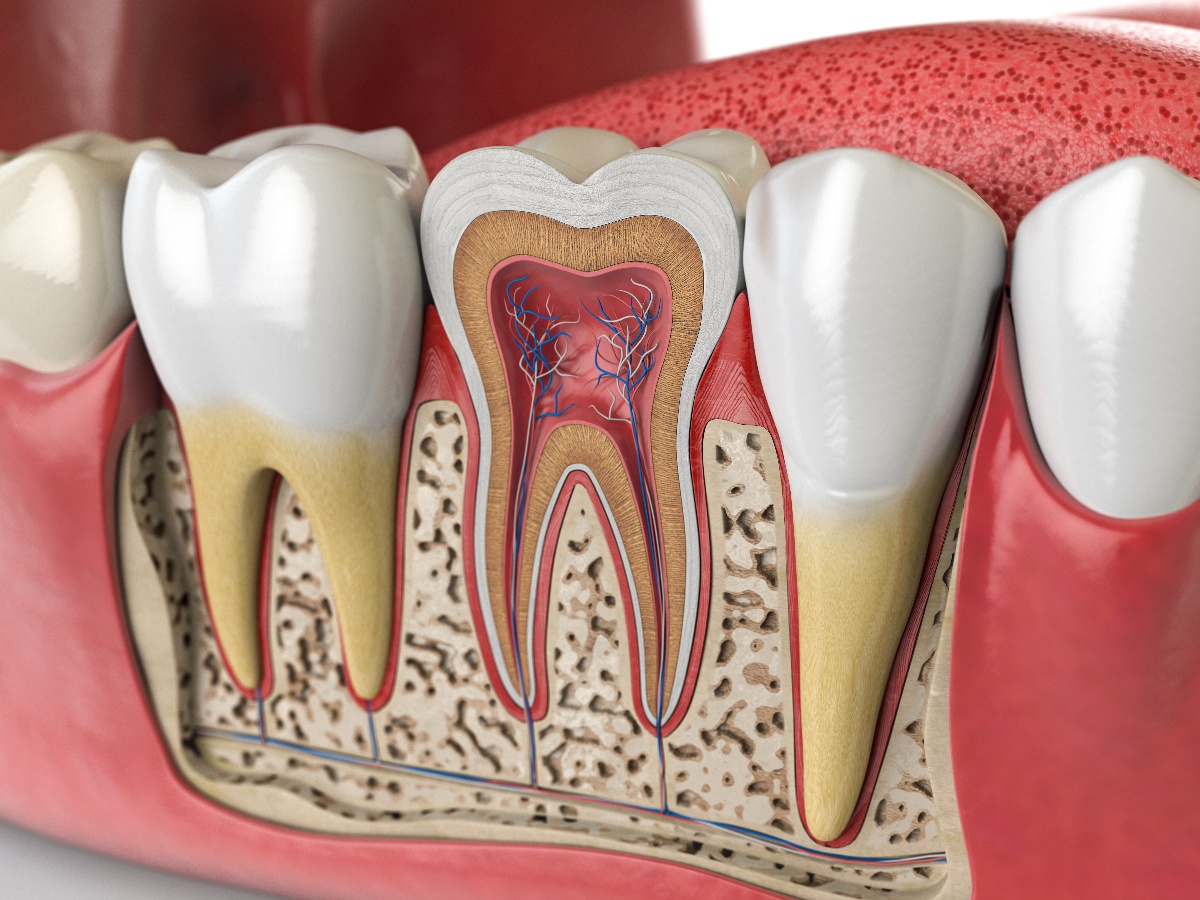Did you know that your tongue harbors more bacteria than the rest of your mouth combined? This surprising fact underscores the importance of proper tongue care. While most people have an established oral hygiene program that includes brushing and flossing, another practice has been gaining attention for its supposed benefits to oral health—tongue scraping. Tongue scraping, an ancient practice with roots in traditional medicine, offers a simple solution for fresher breath and better oral health. But does it work? What does the science say? Is tongue scraping another health fad, or is there tangible evidence of its benefits?
This article answers these questions to help you decide if tongue scraping is something you might benefit from.
The Anatomy and Function of the Tongue
Your tongue is not just a taste organ but a vital part of your speech and overall health. Understanding its intricate anatomy and multifaceted functions is crucial for appreciating the potential benefits of tongue scraping. Consider its unique design and the vital roles it plays to know why you might want to consider regularly cleaning your tongue.
At first glance, your tongue might seem like a simple muscle, but it's a complex organ made up of multiple groups of muscles. These muscles allow your tongue to move in various ways to aid in chewing, swallowing, and speech. Additionally, your tongue is covered with small bumps called papillae, which contain the taste buds and are integral to how you perceive flavors.
Beyond its mechanical functions, the tongue is a natural habitat for a variety of microorganisms. While many of these bacteria are harmless or even beneficial, an accumulation of harmful bacteria can lead to oral health issues, such as bad breath, tooth decay, and gum disease.
Here's a quick overview of the tongue's roles in your oral health:
- Taste perception: Your tongue's taste buds allow you to enjoy a flavorful diet that includes sweet, sour, bitter, and salty foods and drinks.
- Speech production: Your tongue’s capacity for many movements enables you to articulate words and sounds for effective communication.
- Oral hygiene: All day long, your tongue works to help clean your teeth and mouth by moving saliva around. This neutralizes acids and washes away food particles.
- Indicator of health: Changes in the appearance or texture of your tongue can signal underlying health issues. Healthcare providers often consider the tongue an important area for self-examination and professional evaluation.
What Is Tongue Scraping?
Tongue scraping is a hygiene practice that involves removing the buildup of bacteria, food debris, fungi, and dead cells from the surface of the tongue. This practice is performed with a tool specifically designed for this purpose, known as a tongue scraper. These tools can vary in shape and material, ranging from simple plastic designs to more elaborate stainless steel or copper models.
The concept of tongue scraping is far from new. It has been a cornerstone of Ayurvedic medicine, a traditional system of medicine that originated in India over 3,000 years ago. According to Ayurveda, scraping the tongue not only cleanses the mouth but also helps to remove toxins from the body, promoting overall health. Various cultures have adopted this practice over the centuries, each adding its own techniques and tools, making tongue scraping a globally recognized component of oral hygiene.
Key aspects of tongue scraping include:
- Purpose: The objective of cleaning the tongue is to remove excess particles, including bacteria and food debris, that brushing alone may not eliminate.
- Tools Used: A tongue scraper made of plastic, stainless steel, or copper is commonly used. Some people may use a soft-bristled toothbrush or the edge of a spoon instead of a specialized tool.
- Technique: The scraper is gently pulled across your tongue's surface, usually from back to front, to collect and remove the buildup.
- Frequency: Typically recommended once or twice a day, often as part of a morning or evening oral care routine.
Despite its simplicity, tongue scraping can profoundly impact oral health and hygiene. By incorporating this practice into daily routines, you may experience a noticeable improvement in mouth freshness and heightened taste sensitivity.
Eight Possible Benefits of Tongue Scraping
While many possible benefits of tongue scraping require further scientific verification, there's compelling evidence for some of these potential advantages:
- Reduces oral bacteria: The tongue can harbor bacteria that contribute to tooth decay, gum disease, and bad breath. Regular scraping can help reduce this bacterial load, promoting a healthier oral environment.
- Improves breath: Bad breath, or halitosis, may result from bacteria and food remnants on the tongue. Removing these elements can lead to fresher breath, a benefit many people report after tongue scraping.
- Increase the potential for reduced plaque buildup: Some studies suggest that tongue scraping, used along with brushing and flossing, can help reduce overall plaque levels in the mouth.
- Enhances taste: Scraping can remove the coating that can build up on the tongue, exposing the taste buds more directly to flavors and potentially enhancing the taste perception of foods and beverages.
- Boosts immune system function: Your mouth is a gateway to your body’s immune system. Tongue scraping is believed to remove toxins and bacteria from your tongue, helping prevent them from being reabsorbed into the body and potentially enhancing immune system function.
- Promotes digestive health: According to Ayurvedic principles, tongue scraping activates saliva production and helps stimulate the digestive process before eating. This signals your body’s preparedness for food intake.
- Improves oral health: Along with brushing and flossing, tongue scraping can be part of a comprehensive oral hygiene regimen supporting overall mouth health.
- Indicator of overall health: The tongue's appearance can reflect the body's general health. Regular scraping can help individuals become more familiar with their tongue's normal appearance, making it easier to notice potentially concerning changes.
How to Properly Scrape Your Tongue
Incorporating tongue scraping into your daily oral hygiene routine can offer several benefits, but doing it correctly is critical to maximizing its effectiveness while avoiding discomfort or injury. Here are some tips on adequately scraping your tongue to ensure you get the most out of this ancient practice.
- Choose the Right Tool: Select a tongue scraper that is comfortable to use and made from a material you prefer, such as stainless steel, copper, or plastic. Each material has its benefits, with metal scrapers often being more durable and easier to clean.
- Timing: It’s generally recommended to scrape your tongue in the morning, before you eat or drink anything, to remove the buildup that accumulates overnight. Some people also prefer to scrape their tongue in the evening as part of their nighttime routine.
- Positioning: Stick out your tongue as far as possible and place the scraper at the back of your tongue. If you’re worried about a gag reflex, start in the middle of your tongue and gradually move further back as you become more comfortable with the sensation.
- Scraping Technique: Gently press the scraper against your tongue and, with light pressure, pull it forward towards the tip of your tongue. Rinse the scraper after each pass to remove the debris. Repeat this process 5-7 times, covering different areas of your tongue until you’ve thoroughly cleaned the entire surface.
- Rinse: After scraping, rinse your mouth with water or an antibacterial mouthwash to remove any loosened debris and bacteria.
- Clean Your Tool: Wash your tongue scraper with warm, soapy water after each use to ensure it remains hygienic. Allow it to dry completely before storing it.
- Be Gentle: Avoid pressing too hard to prevent damage to the tongue’s surface, which can lead to irritation or injury.
- Consistency: Make tongue scraping a part of your daily routine for the best results.
- Monitor Your Tongue: Pay attention to changes in your tongue’s appearance and sensitivity, as these can indicate the need to adjust your technique or the frequency of scraping.
Schedule an Appointment
If you have concerns about bad breath or oral health, or if you experience discomfort from tongue scraping, ask your oral health professional at Palmetto Dental Arts. To schedule an appointment, call us or contact us online.





